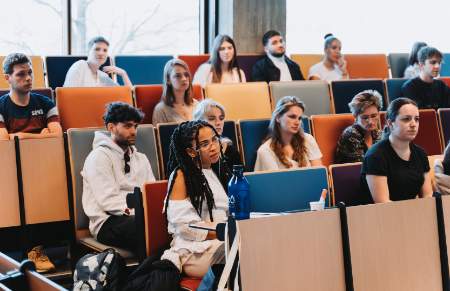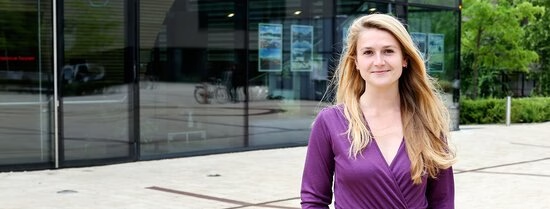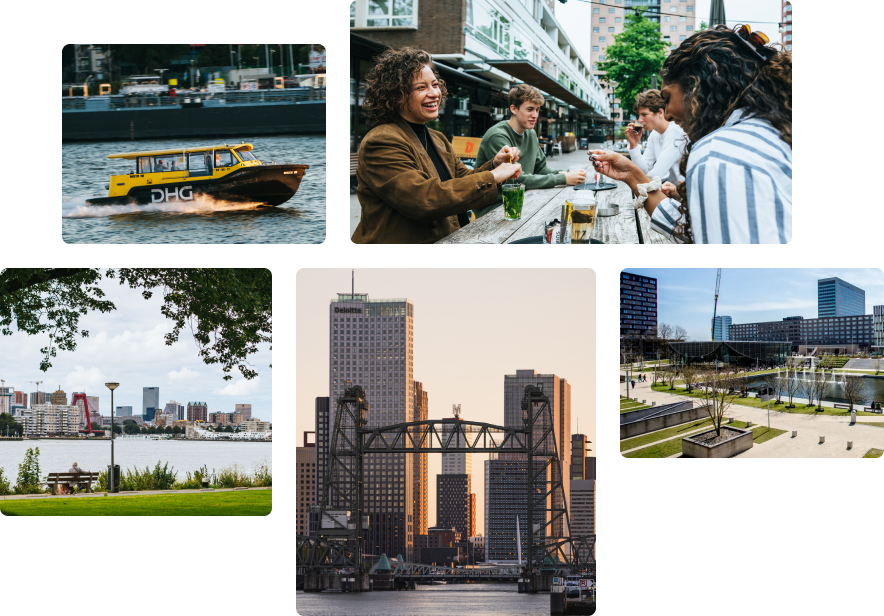Why did you decide to study philosophy?
In my first year of MISoC, a very multidisciplinary program, we explored many topics about the global order, power structures, and the various perspectives influencing world leaders. However, I felt that deeper introspection—asking why these leaders behave as they do—was often missing. Philosophy occasionally emerged during discussions, and I've always loved philosophical reflection. So when I discovered I could combine philosophy with my degree to better understand the deeper reasons behind global dynamics, I immediately chose to pursue it.
Have you found answers about why the world is the way it is?
I don’t think I have fully figured it out yet, but I'm increasingly drawn to absurdism and certain post-structuralist ideas—particularly the notion that there isn't a fixed or absolute truth. Truth continually evolves depending on one's changing social, cultural, and economic contexts. I feel these ideas hold essential clues to understanding the complexity of the world.
What does philosophy add to your education and life more broadly?
Philosophy has profoundly enriched my life by bringing clarity, purpose, and meaning. I've always been fascinated by existentialist questions: what does it mean to exist, what is life’s purpose, how do we approach death? Some people find these topics depressing, but for me, engaging deeply with these questions provides comfort and clarity. Philosophy helps me articulate personal purpose and gives direction to my life.
Academically, philosophy complements my MISoC degree remarkably well. It provides new perspectives on global dynamics, institutional power structures, and societal issues, allowing me to see connections more clearly. The theoretical insights from philosophy enrich my practical understanding, helping me to better apply solutions from MISoC and fully utilize my combined education.
In your view, what exactly is philosophy?
That’s indeed a complex question with many possible answers. Recently, while studying different philosophers, I've found that philosophy, to me, is about discovering pieces of your soul. There's a Sanskrit saying, “sarvam khalvidam brahma”, which means all knowledge already exists within us. Philosophy offers us lenses—perspectives from diverse philosophers—helping us uncover the wisdom already hidden within ourselves. For me, philosophy is essentially a journey inward.
What question should I definitely ask you?
Recently, we were discussing this fascinating question in our board: "What is a philosophical cure?" I think that’s a question worth exploring.
So, what is a philosophical cure?
Some people say there isn't really a cure in philosophy because philosophers primarily question rather than solve life's mysteries, sometimes leading to despair. But I actually find philosophy deeply healing. Reading philosophers like Jean-Paul Sartre, Simone de Beauvoir, Marcus Aurelius, and Aristotle—especially his concept of eudaimonia, which emphasizes happiness through virtues like wisdom, courage, and perseverance—has been therapeutic for me. Even if I don't agree entirely with every philosopher's idea (like continuously pushing a metaphorical boulder uphill), simply understanding the complexities of life and recognizing that others share similar struggles can bring immense comfort. Philosophy reminds me I'm not alone in my confusion and challenges; that, to me, is its true therapeutic power.
Which philosopher or philosophical idea resonates most strongly with you right now?
Currently, the philosopher Rabindranath Tagore resonates deeply with me. He was a Bengali poet and philosopher who won the Nobel Prize in Literature in 1913. In his book, The Religion of Man, Tagore beautifully discusses the divinization of humans and the humanization of God. According to him, true spirituality doesn't reside solely in religious rituals, deities, or prayers, but rather in our small, everyday acts of humanity. He emphasizes that God and spiritual essence exist in simple gestures of compassion and kindness—in love and empathy. That perspective speaks profoundly to me right now: spirituality and divinity are found in the quiet, daily expressions of human kindness.




